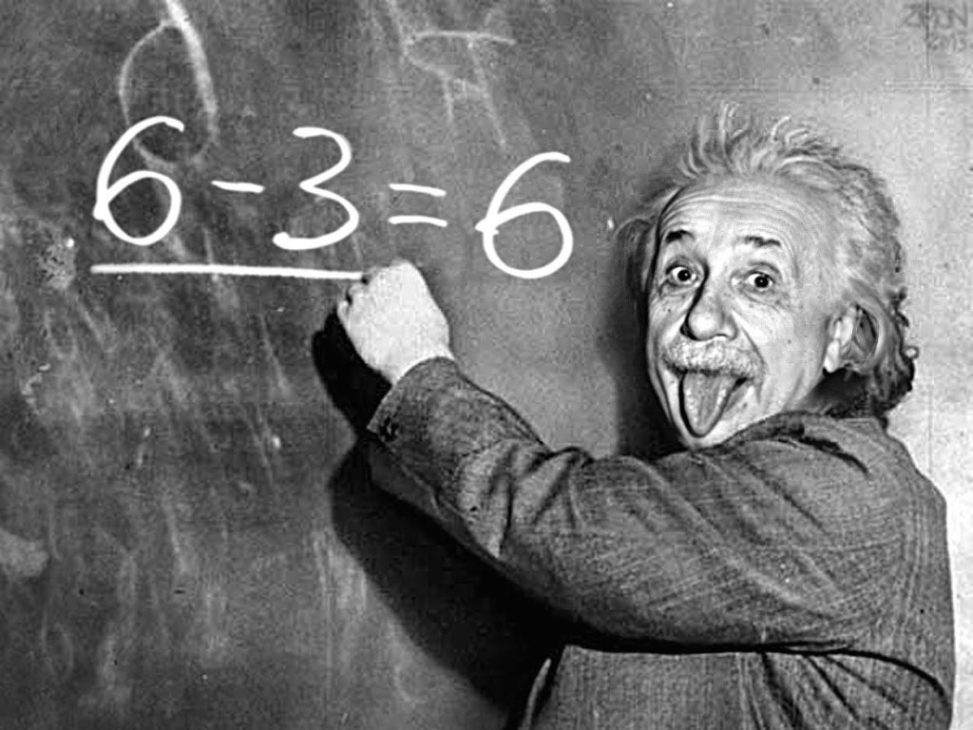He was born on March 14, 1879 and died on April 18, 1955 from a heart failure.
Albert Einstein was a well-known German physicist from the 19th and 20th centuries.
Albert is mainly recognized for having developed the theory of relativity and the theoretical explanation of the Brownian movement and the photoelectric effect.
He studied for many years at the University of Zurich, Switzerland, until in 1905 he got his doctorate in physics.
He married Mileva Maric physicist and had three children called Eduard Einstein, Lieserl Einstein and Hans Albert Einstein.
On February 14, 1919 they divorced and later married Elsa Einstein with whom he had no children, but Albert took care of the daughters of Elsa as if they were his own.

The theory of relativity was created with one question “How was able to travel the Earth very fast in the space?”. To begin with, the relativity is the different point of reference on one thing, for example the velocity of a train. Imagine that you are inside of the train in one velocity of 100km/h and see one car that moves at the same velocity, from your point of view, the car is not moving 0km/h, but if you are in the sidewalk, you see that the car is moving very fast, 100km/h. The point of reference is the theory of relativity.
In the year 1905, Einstein discovered one new theory about relativity. He did and completed the theory with the help of his friends. The deep and precise explanation about the theory of relativity, allowed Einstein to come forward on the theory of Isaac Newton.
In 1905, Einstein proposed the new equation about the relationship of the matter/energy, (E = MC2), energy of a body (E) is equal to the mass (M) of that body times the speed of light squared (C2). This equation consist of that tiny particles of matter can be converted into huge amounts of energy, a discovery that better announced atomic power.
One of Einstein’s most important views of the world was the internationalism and the connection of all humans. Einstein, beyond being a Theoretical Physicist, he wrote a book Einstein and Twentieth-Century Politics: “A Salutary Moral Influence”. In the book he refers to many of his historical quotes.
In the revolution of Russia in the Soviet Union (1917), Albert was one of the intellectuals who welcomed it, thanks to his political knowledge. He thought that was an alternative to Western capitalism.
Einstein discovered, that some of his scientific theories, helped the development of atomic bombs used in Hiroshima and Nagasaki. Also, he was considered a security risk because of his left-leaning views. He sought an alternative, which was to write to the current president of the United States (1939). Roosevelt used that, to work on his own atomic bomb, which was detonated on Hiroshima and later on Nagasaki.

Einstein considered the problem of God as “the most difficult in the world,” since you can not answer with a yes or no. He described his religious opinions as “agnostic”, “religious non believer” and a “pantheistic” believer in “Spinoza’s God”.
In 1921 Einstein was awarded the Nobel Prize in Physics. He received his Nobel Prize one year later, in 1922. This was because the Nobel Committe for Physics decided that none of the year nominations met the criteria of Alfred Nobel. According to the Nobel Foundation’s statutes, Einstein received his Nobel Prize in 1922. He also won the Max Planck medal in 1929, the highest award of the German Physical Society. He received the Copley medal, the greatest recognizable to the scientific work, in any of its fields, granted by the Royal Society. It is also the oldest award, since the first medal was awarded in 1731. And finally, he entered in the list “Time 100: The Most Important People of the Century ”. Of the 100 chosen, Albert Einstein was chosen as the Person of the Century, since he was the basis of a century dominated by science.
On April 18 1955, Albert Einstein died at the age of 76 from a heart failure. But he died leaving us a lot of discoveries which at the moment have served us a lot. In 1999 Einstein was named ‘Person of the Century’ by Time magazine.
We think that Albert Einstein was a very important person in the physic’s field and in the history, in fact, it’s one of the more acknowledged physicist of all history.
